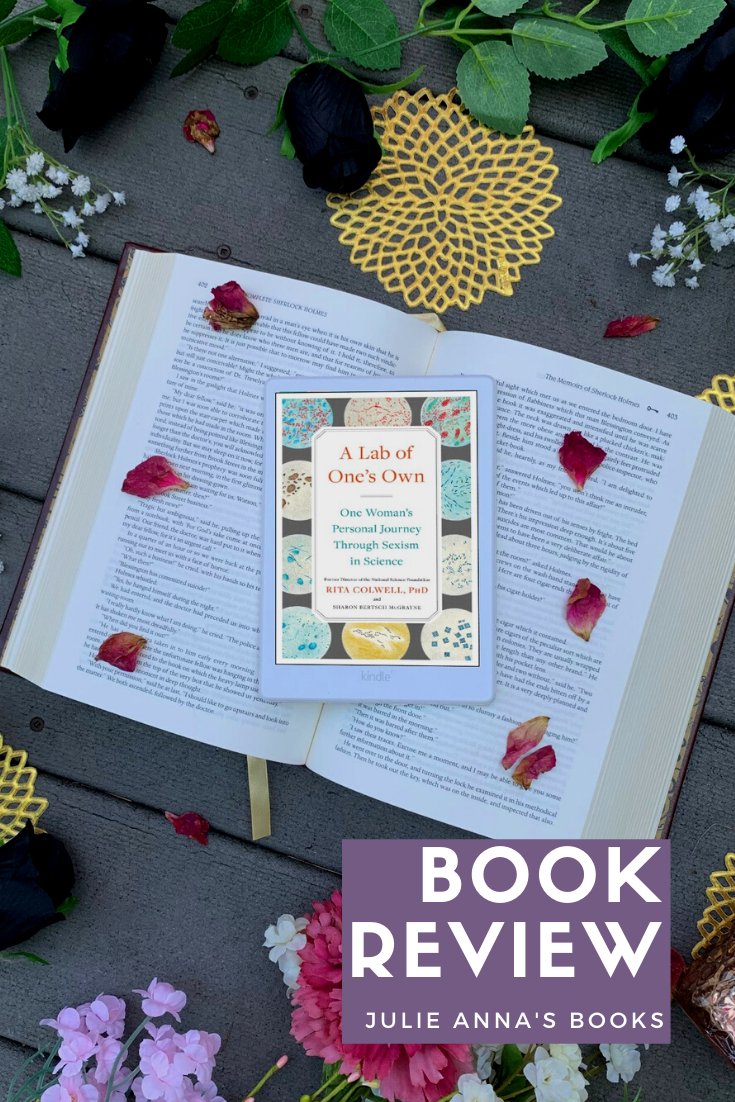Release Date: August 4th, 2020
Genre(s): Non-fiction, Science & Technology
Publisher: Simon & Schuster
Pages: 288
Rating:
Note: I received an e-ARC of this book via NetGalley in exchange for an honest review. All opinions are my own.
Synopsis
A Lab of One’s Own is a part-memoir, part motivational non-fiction book written by Rita Colwell and Sharon Bertsch McGrayne. This book explores Rita’s life as a microbiologist and the pre-existing structures that made it much harder for women like her to have equal opportunity to their male counterparts. It also takes a look at the changes that have taken place over time and the barriers that exist today, and how changes can be made to promote the inclusion and retention of women and minorities in STEMM fields.
Review
I graduated a few years ago with a Computer Science degree and am now working in the field, so this ARC caught my eye. Many of my mentors have had the exact discussions that Rita Colwell brings to light in this book, but what makes A Lab of One’s Own so valuable is that it combines the history of women’s advancement STEMM fields with personal experiences of herself and others. This format brings to light the challenges and barriers faced and why eradicating them is so beneficial and important.
While reading this book, I oftentimes found myself absolutely frustrated with what women like Rita Colwell had to do in order to assert and prove themselves, only to continue to be taken down. From scientific leaders that considered women in the field to be a waste of time and money, to implicit bias that resulted in many women being pushed out of their careers, there are so many different topics that the authors cover in regards to how women in the sciences were treated in this time. I do think that many people underestimate the amount of prejudice women faced in this time, and for that reason, while reading A Lab of One’s Own I thought of how many people I want to read this book. I’ve had many conversations with people about the history of computer science and the dynamics of the field only for people to believe that I’m making exaggerations, so I think that this book will help put things into perspective for those that want to learn more about the field.
A Lab of One’s Own also discusses the importance of having a diverse team, and examples of where treating team members equally help outcomes. This is something that I’ve seen discussed in other books as well, but it’s something that I’ve found is crucial to overall success in the field and I’m glad it was mentioned here. Again, this is something that the book explains well that I think people should be more aware of, and not just for STEMM industries either.
The last section of A Lab of One’s Own features tons of advice directed towards many groups of people. From high school students to parents, women considering graduate studies and male allies, this section covers how to succeed in the field, and how to convince our youth, high-school students, and undergraduate students how to stay in fields that interest them. As this book mentions, many people take interest in STEMM fields and either switch majors or leave the field early, so there’s lots of advice for this group (and mentors) to help them keep moving. I’m glad to see that this was such a big section in the book. And I may be biased towards this field, but seeing (and experiencing) so much discouragement in subjects, mathematics especially, made me want to volunteer and advocate for students pursuing the sciences. Since this book has done so much to educate on the importance of these fields, I’m happy that the authors have essentially created a ‘next steps’ section for those who want to help promote positive change and education. I also liked that the authors stress the importance of educating about all fields/majors and promoting well-roundedness.
A Lab of One’s Own is an easy five-star read for me. It combines recent history, personal experiences, and motivation for those looking to pursue or advance their careers in STEMM, and how to advocate for others to do the same.





Lab Girl is another great lab-scientist novel I’m reading now that’s part memoir, part science.
Ooh, I’ve seen that one around! I’d really like to read that one as well.
It’s pretty good and I enjoyed it well enough.
This sounds really interesting! I worked with a non-profit in grad school writing grants for them to get girls interested in STEM and know a little about those struggles but this sounds like it has a ton to add to the conversation.
That’s great! Yeah, even as someone that’s had some experiences and have learned of many more from my mentors, this book was definitely very informative!